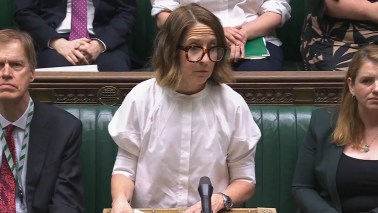State of Play, the Hollywood remake of Paul Abbot’s six-part thriller, is bound to be politely reviewed by my colleagues because it portrays journalists in a sympathetic light. Indeed, Russell Crowe, who plays a fearless reporter, constantly reminds his cost-conscious editor of the vital role performed by journalists in the democratic process. Without us, he points out, there will be no one to hold corrupt politicians to account.
As I watched the film in a screening theatre, surrounded by my fellow hacks, I wondered why it is that a Hollywood studio has decided to lavish all these resources on a eulogy to our profession. After all, newspaper reporters are usually portrayed as sleazebags in Hollywood movies. Could it be that the imminent death of journalism has awakened them to some of our redeeming qualities?
Any illusions I had were soon shattered. About five minutes into the film, there is a key scene between Russell Crowe and Rachel McAdams, who plays a blogger working for the same paper. She asks him if he would like to comment on a story she is writing about an old friend of his and, after establishing that she has done no reporting for the story, he makes a withering remark about the unreliability of blogs. They are fluff, as far as he’s concerned, and she has no right to call herself a journalist. Shortly afterwards, McAdams sees the error of her ways and for the rest of the film she sits at the feet of the master, learning how to be a proper reporter.
Clearly, the powers-that-be in Hollywood have not come round to seeing the point of journalism. It is just that their hatred of bloggers is so great that they’ll use any stick to beat them with. In the eyes of Hollywood filmmakers — who loathe and detest all the scuttlebutt about their industry in the blogosphere — they are the new paparazzi. They’re stalkers with laptops. They need to be taught a lesson and if that means temporarily rehabilitating newspaper reporters, so be it.
The irony, of course, is that bloggers are about to eclipse print journalists. I don’t just mean that they are read by more people, though that is certainly true. I mean in terms of status. On most big city papers in America, it is the bloggers who are teaching the ink-stained wretches a lesson, not the other way round. The notion that a hot young blogger — particularly one as beautiful as Rachel McAdams — would abase herself at the feet of a grizzled old hack is completely ludicrous. In the modern media, the world belongs to people like Rachel McAdams. The most that middle-aged reporters can look forward to is a redundancy cheque.
The romantic portrait of newspaper men in State of Play is particularly absurd given the recent spate of stories broken by Paul Staines, aka Guido Fawkes. The central conceit of State of Play is that when it comes to uncovering malfeasance at the highest level of government, no one can replace print journalists. Not only do they have the skills — they know how to find out a person’s address from their social security number, for instance — but they also have the integrity. Russell Crowe drives a 1991 Saab to prove just how incorruptible he is. Without these unglamorous foot soldiers willing to go into battle on our behalf, who will protect our democracy?
In fact, print journalists have more or less forfeited this role. As Peter Oborne points out in The Triumph of the Political Class, lobby correspondents have allowed themselves to be seduced by spin-doctors, trading their critical independence for the occasional tidbit from the likes of Damian McBride. Yes, economic forces are conspiring to destroy the world’s newspaper industry, but journalists must bear some responsibility for their fate. If they reported on the wrongdoing of politicians with the honesty and zeal that Russell Crowe brings to the task in State of Play, perhaps newspaper sales wouldn’t be in freefall.
It is into this vacuum that bloggers have stepped. In America, the biggest political scandal of the last two decades (Bill Clinton’s affair with Monica Lewinsky) was broken by Matt Drudge, and in Britain the most significant political story of the year was winkled out by Paul Staines. Bloggers can go after politicians — in a way that journalists are no longer prepared to do — because they are genuine outsiders. If Hollywood really wants to make a film about a lone journalist taking on the might of Big Government, it should make the hero a political blogger.






Comments